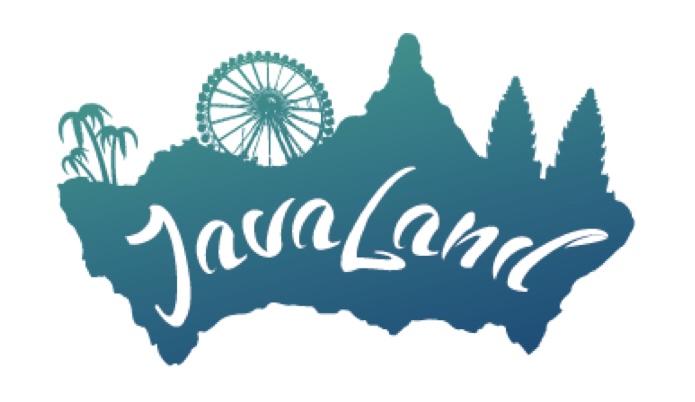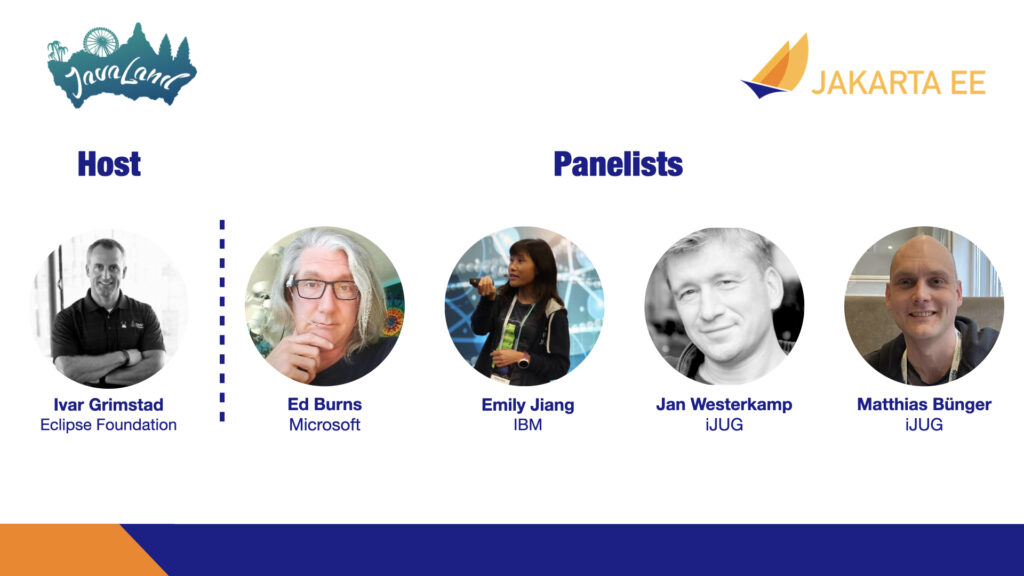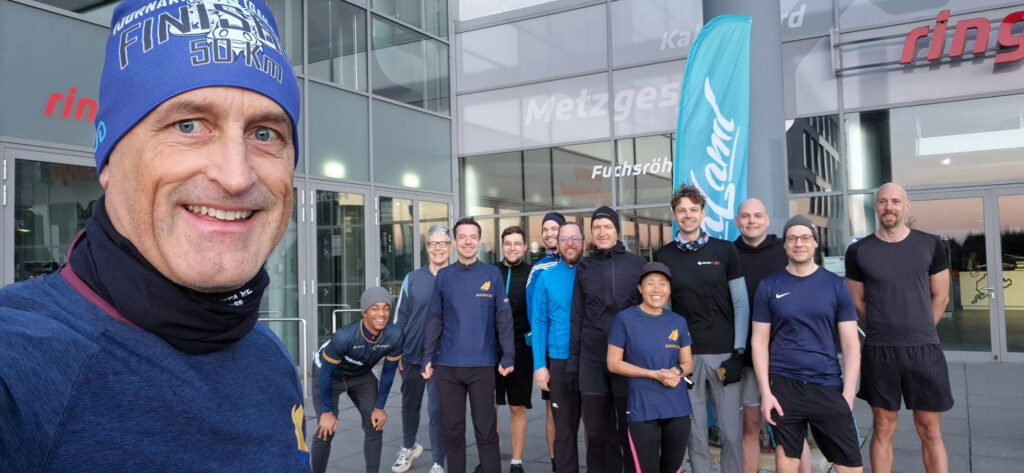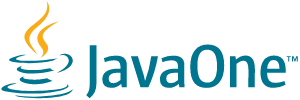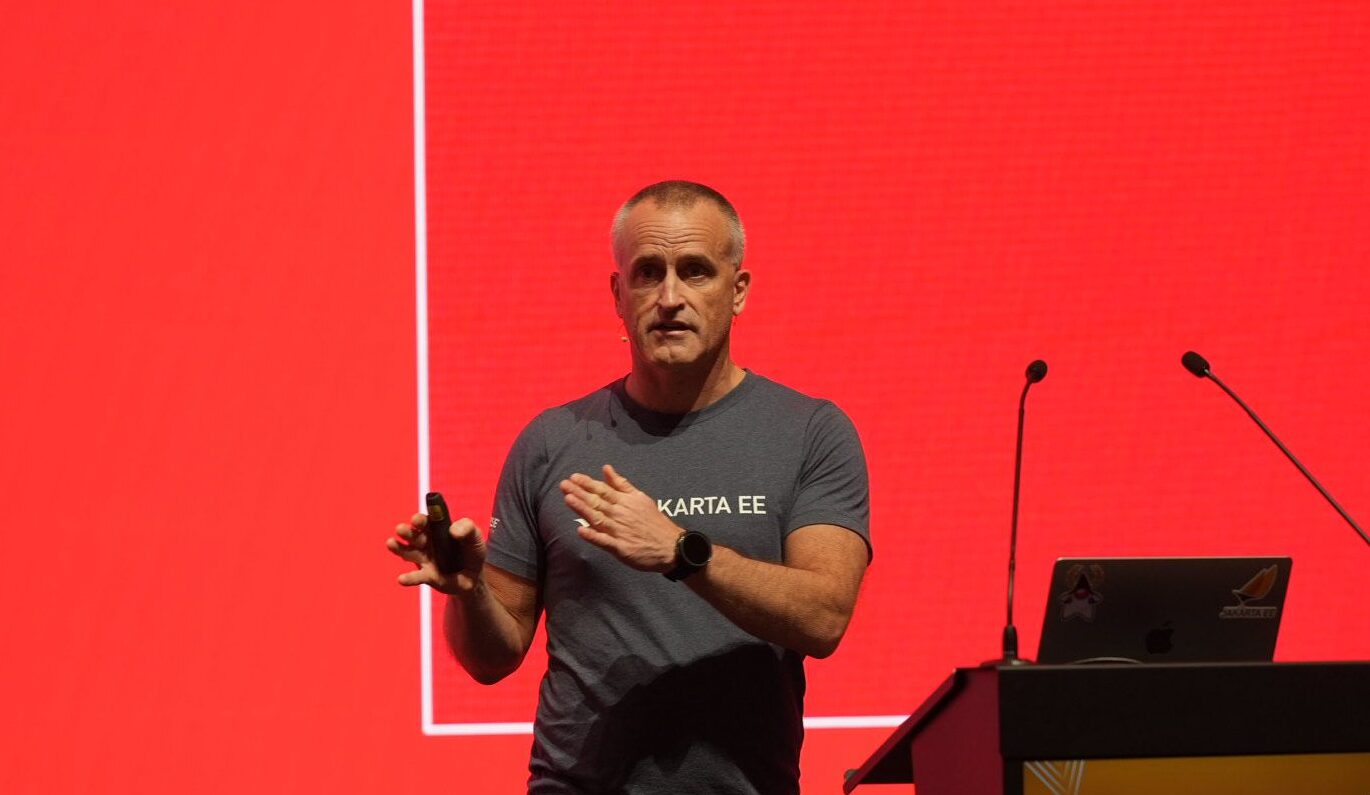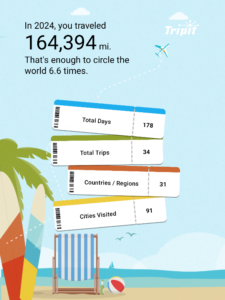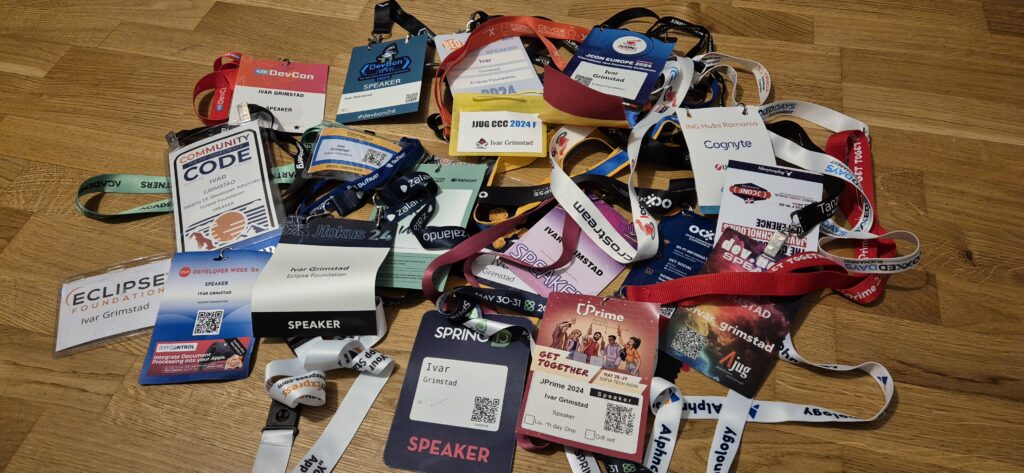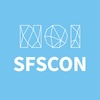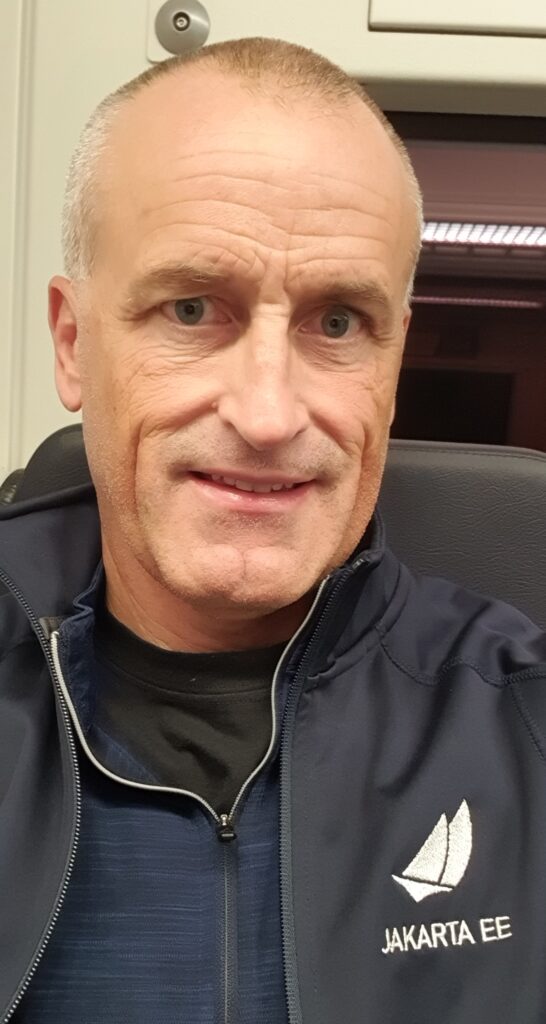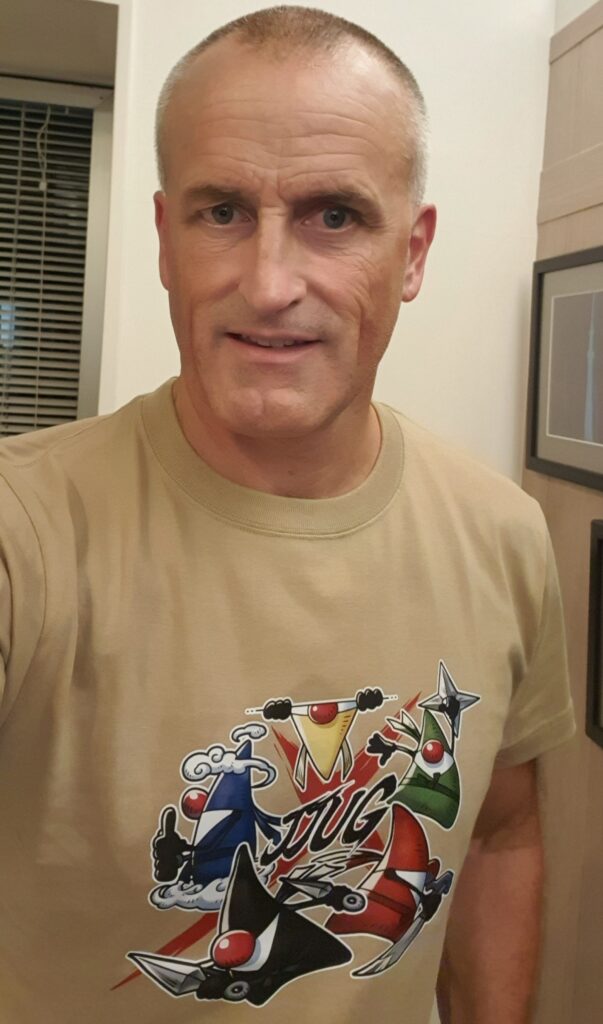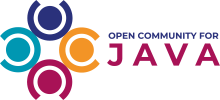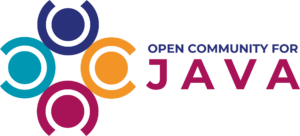JavaLand has always been one of my absolute favourite conferences. With one exception, I have been to every one of them. JavaLand 2025 was, as last year, located at Nürburgring. The location is good, but not perfect, which the attendee numbers show. Next year’s JavaLand will be back in a theme park again.
My talk at JavaLand this year was Boost Your Performance and Developer Productivity with Jakarta EE 11. I gave an overview of Jakarta EE 11, showed some demos, and gave an indication for where Jakarta EE 12 is headed.
The Jakarta EE Community Panel has become a tradition at JavaLand. The setup is that we gather panelists during the conference among the speakers and attendees and let them answer and discuss questions from the moderator or the audience in a very informal, relaxed manner. This year’s panelists were Ed Burns, Emily Jiang, Jan Westerkamp and Matthias Bünger.
Another tradition at JavaLand is the Wednesday morning JavaLand Jogging. This is actually where I got the inspiration for #runWithJakartaEE. This year, I was asked to host the event, which I accepted with pleasure.
This is the best way to kickstart the day before the conference!
Since JavaLand was hosted at Nürnburgring, the activities naturally were car-related, with the Ring Kartbahn where we could race in electric solar powered go-karts. Eclipse Foundation had a booth this year with an unusual choice of swag…expect to see Jakarta EE branded towels throughout Europe this summer. At the Tuesday evening party, we had some fun with the social media wall. Check out the Bluesky handles for Andres, Benjamin, Brian, Carmen, Alina, and myself.




